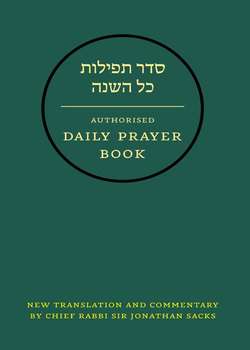Читать книгу Hebrew Daily Prayer Book - Jonathan Sacks - Страница 9
A. From Universal to Particular
ОглавлениеIn general, sequences of Jewish prayer move from the universal to the particular. Grace after Meals, for example, begins with a blessing thanking GOD “who in His goodness feeds the whole world”. The second blessing moves to particularities: Israel, liberation from slavery, “the covenant You sealed in our flesh”, Torah and the commandments. We thank GOD “for the land [of Israel] and the food.” The third is more narrowly focused still. It is about the holy city, Jerusalem.
The same pattern exists in the two blessings before the Shema in the morning and evening service. The first is about the universe (“who gives light to the earth” “who creates day and night”), and the second is about Torah, the specific bond of love between GOD and the Jewish people. Look and you will find many more examples in the Siddur. (The one exception is Aleinu, whose first paragraph is about Jewish particularity and whose second is a universal hope. On this, see below, on “mirror-image symmetry.”).
This movement from universal to particular is distinctively Jewish. Western culture, under the influence of Plato, has tended to move in the opposite direction, from the concrete instance to the general rule, valuing universals above particularities. Judaism is the great counter-Platonic narrative in Western civilization.
Moving from the universal to the particular, the prayer book mirrors the structure of the Torah itself. Genesis begins, in its first eleven chapters, with a description of the universal condition of humankind. Only in its twelfth chapter is there a call to an individual, Abraham, to leave his land, family and father’s house and lead a life of righteousness through which “all the families of the earth shall be blessed”.
There are universals of human behaviour: we call them the Noahide Laws. But we worship GOD in and through the particularity of our history, language and heritage. The highest love is not abstract but concrete. Those who truly love, cherish what makes the beloved different, unique, irreplaceable: that is the theme of the greatest of all books of religious love, The Song of Songs. That, we believe, is how GOD loves us.
